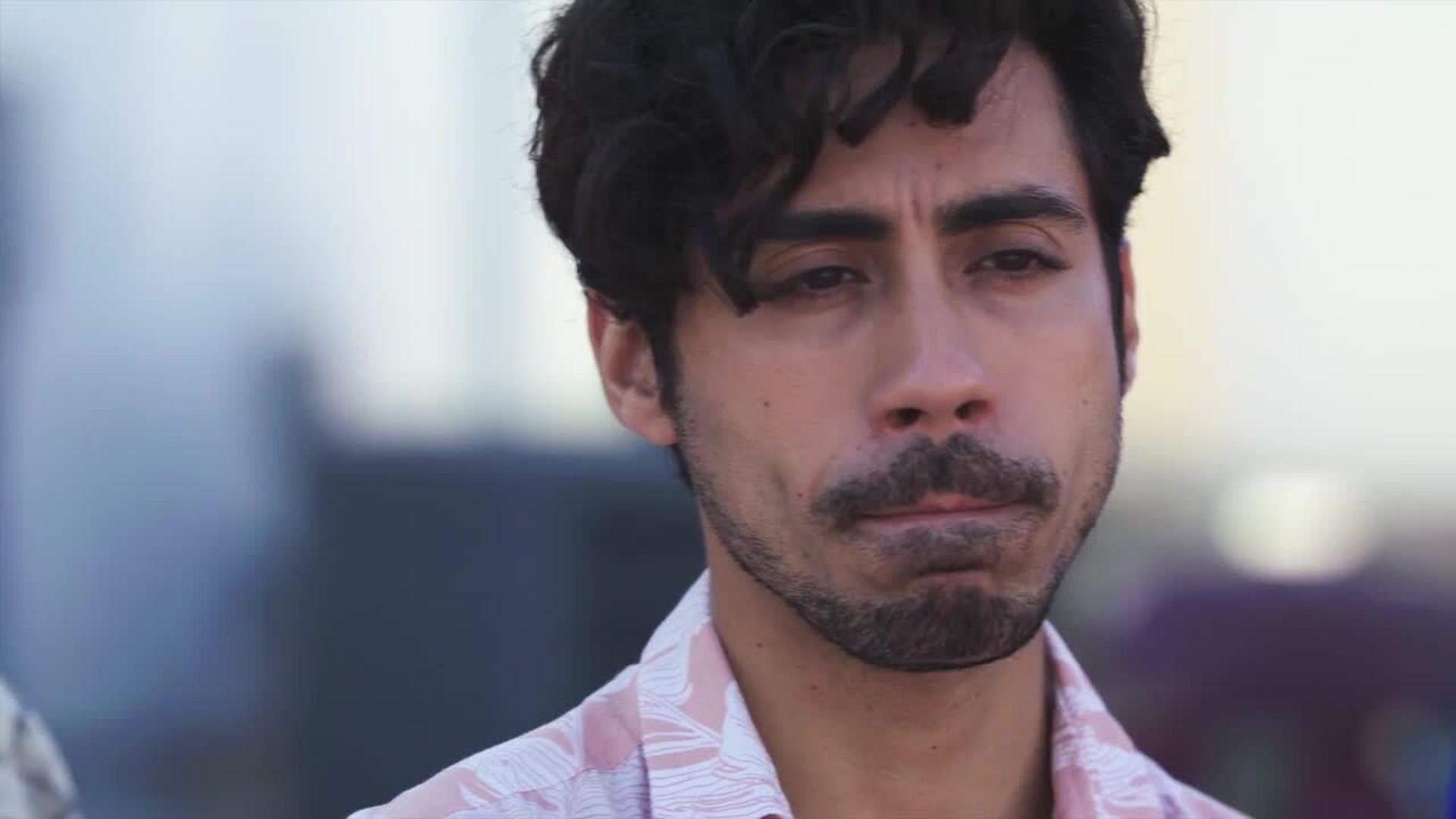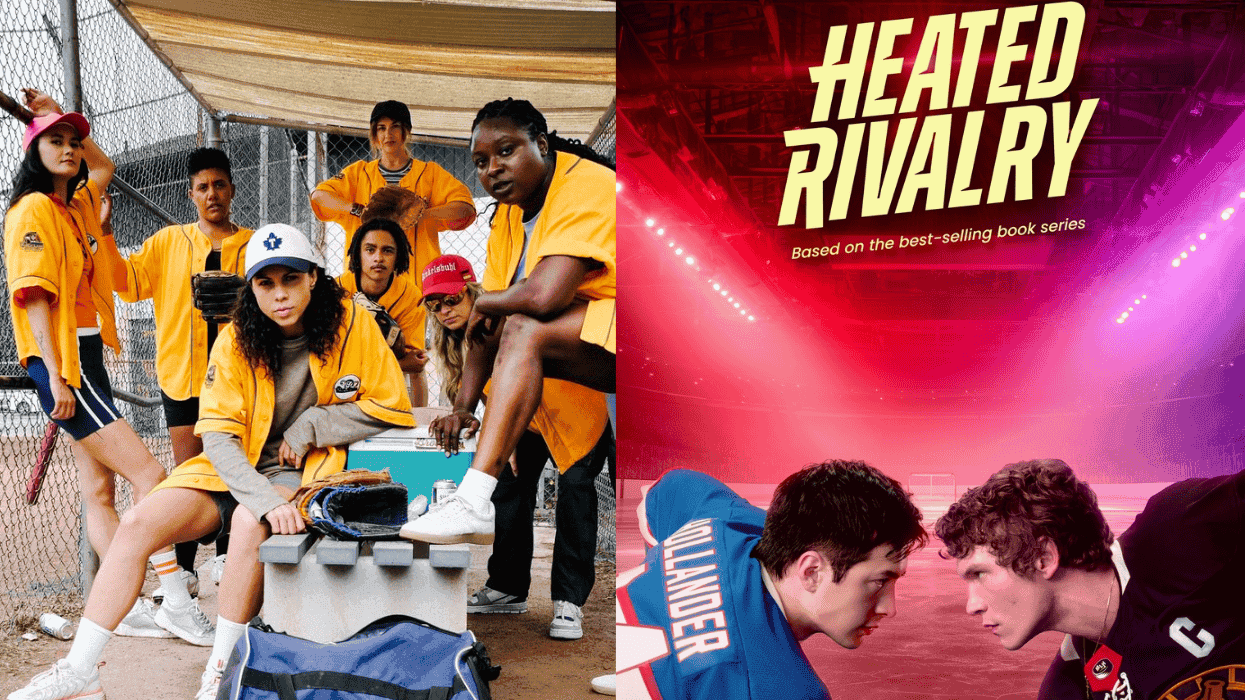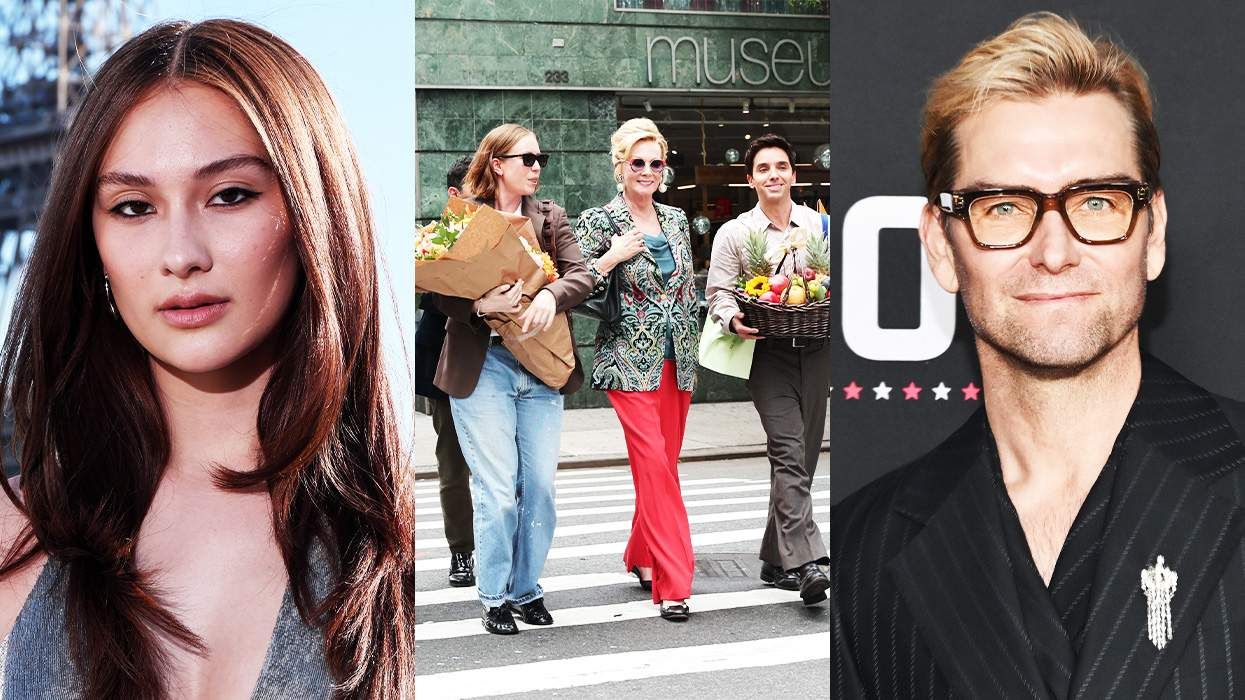A cynic may scoff at yet another television series that explores the bright, sprawling Los Angeles cityscape and the people who live there. Like it or not, the entertainment capital of the world inspires artists there to explore their surroundings, and the production infrastructure is already on-site. Falling for Angels, a new television series on Here TV, is not the first to tackle L.A. as its subject, and it will not be the last. Happily, it's one of the better ones.
The nothing-if-not-spectacularly diverse City of Angels provides a good palette for films and television shows about Americans because it is the American Babylon. It was founded in Mexico; it faces Asia; it was settled by immigrants who came in search for things as divergent as surf and deliverance from the Jim Crow South. Like all cities everywhere, it is more queer than the norm.
This diversity, however, is too often ignored by the infamously self-indulgent entertainment industry, which seems to never pass on the opportunity to make content about show business or the lives of the white, the pretty and the comfortable. As it usually goes, the most affecting content about L.A. is about, well, realistic and relatable people. Modern Family comes from the upper-middle class, yes, but at least they are characters of the type that exist in the real world. Tangerine was an underground hit because it was a glorious examination of black transgender sex workers and a married, Armenian-American client -- the kind of actual people who inhabit society's sidelines.
Nevertheless, both of those examples apply liberal degrees of screwball farce to keep the viewer's attention. Comedy-drama anthology series where the plots and characters are contained to an episode are often affecting for their verisimilitude. This quality is certainly the best attribute of Falling for Angels -- where each episode is contained to one L.A. neighborhood, where each episode is about the lives of queer people of color, where each episode was written and directed by a queer person of color.
"I've never worked with Here TV, but I really appreciate what they were trying to accomplish with this series," says Nick Oceano, who wrote and directed the series premiere. The series is produced in cooperation with Pride Media, this publication's corporate owner. "I love that they're interested in these stories. I rarely get the opportunity where someone says, 'What story do you want to tell? Go out and tell it.'"
The episode by Oceano -- best known for his 2008 MTV biopic about HIV activist Pedro Zamora -- is set in Boyle Heights, a predominantly Latino, rapidly-gentrifying neighborhood east of downtown. Protagonist Jesse, a Tejano attorney (Luis Jose Lopez), and his partner Steven (Steve Grand, in his acting debut) are A-Gays, the kind of guys who sit down to a dinner of salad and wine served on china and crystal and complain about loud music as they lay down to sleep. In a nod to the ineradicable societal linkage of whiteness to desirability and prosperity, Oceano, a San Antonio-native who came westward to attend the University of Southern California, used the word "whitewashed" to describe his lead.
The narrative is well-used. Jesse buys coffee from a shiny new cafe, rejecting the efforts of Leo (Adrian Nunez), an activist trying to enforce a boycott of said coffeeshop in favor of a family-owned one down the block. In the ensuing argument, Leo calls Jesse a "coconut" -- brown on the outside, white on the inside. Leo invites Jesse to a house party and activists' meeting ("It starts at 3, 'Latin Time'--so like 4"), and, to his surprise, Jesse agrees. Jesse brings pinot grigio. Leo recites slam poetry.
The rest is not cliche. Leo grounds Jesse, and Jesse reminds Leo that his status is fundamentally tied to his skin color, yesterday and today, and that there is something to be said for the law as a profession to complement activism. There are many ways to be a person of color in the United States. Pertaining to a universal issue affecting gay relationships, Jesse's tendency to stray creates problems to resolve.
The establishing shots do great work in setting the scene in actual, contemporary L.A. -- of folks on the streets of Boyle Heights, of streets bathed in that golden Californian sunshine, and of rolling light rail, not gridlocked traffic. Oceano used Boyle Heights-based musicians for the soundtrack. The finished product is not perfect. The dialogue is clunky in certain scenes, the camerawork is perhaps a bit too reliant on showcasing the immaculate beauty of the actors' bodies in the intimate scenes, and I'm not sure a gay couple exists that engages in post-coital cuddling only after putting their underwear back on.
These are ultimately slight criticisms, however. If the premiere is any indication, Falling for Angels will be a series of bite-sized, breezy-but-real examinations of contemporary queer intersectionality, relationships, and love in our heady, discordant times. It does right by its audience by staying true to the lives they actually live.
A new episode of Falling for Angels premieres this week on Friday on Here TV. Watch the Boyle Heights episode below.
















